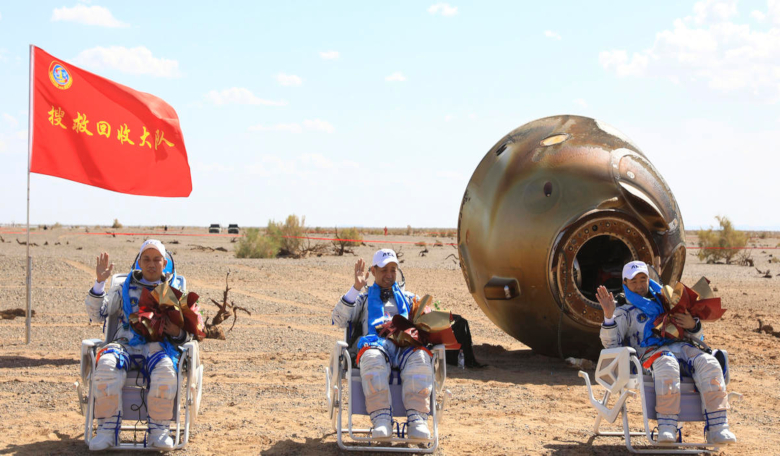Three Chinese astronauts returned to Earth Friday after completing the country's longest-ever crewed mission, the latest landmark in Beijing's drive to become a major space power.
The capsule carrying the trio deployed its parachute and landed in the Gobi desert at 1:34 pm local time (05:34 GMT).
"It feels very good to be back!," Tang Hongbo told state broadcaster CCTV after the 90-day mission, a record for China.
"I want to say dad, mom, I'm back! In good health and good spirits!" he said after emerging from the capsule within 30 minutes of landing.
The crew of the Shenzhou-12 spacecraft were in good health, China Manned Space Agency (CMSA) said in a statement.
"The first manned mission to the (Chinese) space station is a complete success," it said.
The taikonauts - as Chinese astronauts are known - will undergo a 14-day quarantine before they can go home "because their immune systems may have weakened after the long mission," Huang Weifen, chief designer of China's manned space project told CCTV.
The mission was part of China's heavily promoted space programme, which has already seen the nation land a rover on Mars and send probes to the moon.
The launch of Beijing's first crewed mission in nearly five years coincided with the 100th anniversary of the ruling Communist Party on July 1, and was the highlight of a massive propaganda campaign.
The crew stayed for 90 days at the Tiangong space station, conducting spacewalks and scientific experiments.
"The successful completion of the mission... paves the way for future regular missions and utilisation of the (Chinese space) station," said Chen Lan, an independent analyst at GoTaikonauts, which specialises in China's space programme.
"It is a very important and very much needed start for the CSS."
Tiangong, meaning "heavenly palace", is expected to operate for at least 10 years.
The mission is headed by Nie Haisheng, a decorated air force pilot in the People's Liberation Army who previously participated in two space missions.
The two other astronauts, Liu Boming and Tang, are also in the military.











